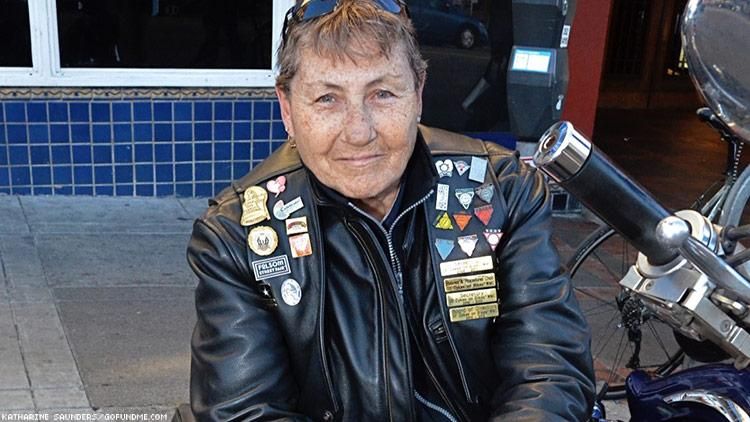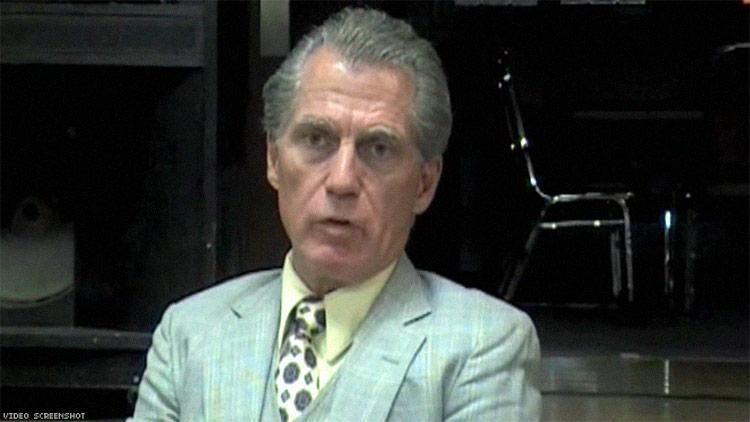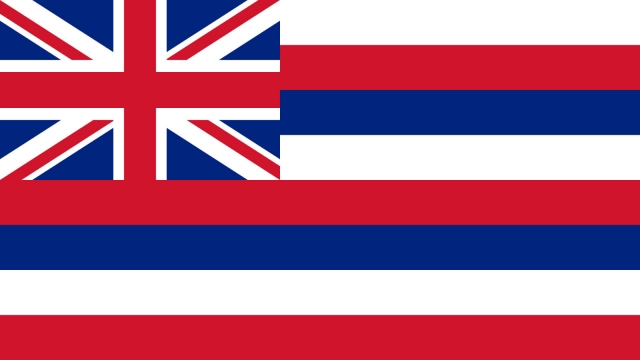Soni Wolf, Founding Member of Dykes on Bikes, Dies at 69

Wolf will be honored at this year’s San Francisco Pride parade.
www.advocate.com/pride/2018/5/01/soni-wolf-founding-member-dykes-bikes-dies-69
Soni Wolf, Founding Member of Dykes on Bikes, Dies at 69

Wolf will be honored at this year’s San Francisco Pride parade.
www.advocate.com/pride/2018/5/01/soni-wolf-founding-member-dykes-bikes-dies-69
California Voter Guide Contains Vile Anti-Trans Screed

The hateful words of Don J. Grundmann, hoping to unseat Dianne Feinstein, were mailed out to every California voter.
www.advocate.com/politicians/2018/5/01/california-voter-guide-contains-vile-anti-trans-screed
Hawaii Legislature Sends Bill to Protect LGBTQ Youth from “Conversion Therapy” to Governor Ige

Today, HRC urged Hawaii Governor David Ige to sign SB 270 — crucial legislation protecting LGBTQ youth from the dangerous and debunked practice of so-called “conversion therapy.” SB 270 was advanced through conference committee last week and approved today by both chambers of the state legislature, sending the bill to Governor Ige’s desk. If signed into law, Hawaii will join the growing number of states and municipalities enacting crucial protections for LGBTQ youth.
“So-called ‘conversion therapy’ is nothing short of child abuse with life-threatening consequences for countless LGBTQ youth,” said HRC Senior Vice President for Policy and Political Affairs JoDee Winterhof. “It is time Hawaii join the growing number of states who are enacting laws to protect LGBTQ youth from this dangerous and discredited practice. We thank the state legislators for passing this critical bill and urge Governor Ige to quickly sign it into law.”
There is no credible evidence that conversion therapy can change a person’s sexual orientation or gender identity or expression. To the contrary, research has clearly shown that these practices pose devastating health risks for LGBTQ young people such as depression, decreased self-esteem, substance abuse, homelessness, and even suicidal behavior. The harmful practice is condemned by every major medical and mental health organization, including the American Psychiatric Association, American Psychological Association, and American Medical Association.
Connecticut, California, Nevada, New Jersey, the District of Columbia, Oregon, Illinois, Vermont, New York, New Mexico, Rhode Island, and Washington all have laws or regulations protecting youth from this abusive practice. A growing number of municipalities have also enacted similar protections, including cities and counties in Ohio, Pennsylvania, Washington, Florida, New York, Arizona, and Wisconsin. The state of Washington passed its protections into law in March of this year, and Maryland’s state legislature sent a similar bill to the governor earlier this month.
According to a recent report by the Williams Institute at UCLA School of Law, an estimated 20,000 LGBTQ minors in states without protections will be subjected to conversion therapy by a licensed healthcare professional if state lawmakers fail to act.
HRC has partnered with the National Center for Lesbian Rights (NCLR) and state equality groups across the nation to pass state legislation ending conversion therapy. More information on the lies and dangers of efforts to change sexual orientation or gender identity can be found here.
Veja o VÍDEO que mostra o momento do DESABAMENTO do PRÉDIO de 20 andares no Centro de São Paulo
CANAL do ALONSO posted a video:
*** INSCREVA-SE no CANAL do ALONSO no YouTube ***
Janelle Monáe on Fighting Bullies and Growing Up Poor

Queer icon Janelle Monáe discusses her childhood and how she always stood up for the underdog.
www.advocate.com/arts-entertainment/2018/5/01/janelle-monae-fighting-bullies-and-growing-poor
Pulse survivor says he’s not gay anymore after religious conversion
‘RuPaul’s’ Snatch Game, Mulaney’s ‘Kid Gorgeous’, Carol Burnett, ‘Dear White People’ and More TV This Week


Check out our weekly guide to TV this week, and make sure you’re catching the big premieres, crucial episodes and the stuff you won’t admit you watch when no one’s looking.
One of the sharpest stand-ups working today, John Mulaney, is back with another stand-up special on Netflix. Available Tuesday, Kid Gorgeous features the former SNL writer, star of Oh, Hello and voice on Big Mouth sharing his hilarious observations.
It’s the RuPaul’s Drag Race episode we’ve all been waiting for: Snatch Game. Which queens will reign supreme in fans’ favorite challenge Thursday at 8 p.m. on VH1? See what Morgan and Raja had to say about the queens in the video above (and what we had to say in our recap) ahead of this week’s celebrity-studded challenge.
Out actress and writer Lena Waithe joins the cast of Dear White People dropping on Netflix Friday. The show also features Lionel, a gay journalism student.
Comedic legend (and gay icon) Carol Burnett comes bounding back to the small screen with a new series on Netflix Friday. A Little Help With Carol Burnett features the beloved comedian alongside a group of straight-talking tykes and celebrity guests like DJ Khaled, Lisa Kudrow and Billy Eichner.
Get a behind-the-scenes look at the crazy culinary world of New York City with Starz new dramedy Sweetbitter Sunday at 8 p.m. The coming-of-age story follows Tess as she starts her life over in New York City working at a high-end restaurant and getting to know its ragtag staff (including stand-out character, the flamboyant, Russian punk, Sasha.)
What are you watching this week on TV?
The post ‘RuPaul’s’ Snatch Game, Mulaney’s ‘Kid Gorgeous’, Carol Burnett, ‘Dear White People’ and More TV This Week appeared first on Towleroad.
HRC Celebrates National Foster Care Month 2018

Post submitted by Jean-Phillipe Regis, HRC Senior Manager, Children, Youth and Families
Today begins HRC’s annual celebration of National Foster Care Month, a nationwide effort to bring awareness to the more than 430,000 children and youth in foster care.
In partnership with FosterClub, HRC’s All Children – All Families project is launching its #FosterEquality campaign again this year to share stories of young LGBTQ leaders who have experienced foster care. The stories of young leaders like Weston Charles-Gallow, a former HRC Youth Ambassador and FosterClub advocate, underscore the importance of learning from and advocating for LGBTQ youth in care.
As we celebrate National Foster Care Month, anti-equality lawmakers across the country are currently targeting prospective LGBTQ foster and adoptive parents in Oklahoma and Kansas. These attacks are especially cruel, given that research consistently shows that LGBTQ youth are overrepresented in the foster care system. Many of these young people enter foster care after experiencingfamily rejection because of their LGBTQ status and they continue to be vulnerable to discrimination and mistreatment while in care. These discriminatory bills will only exacerbate the challenges they face. Further, restricting the pool of prospective parents makes it harder for all children to find their forever families.
Today, HRC, Equality Kansas and the ACLU of Kansas launched a full page ad in opposition to HB 2481, the proposed license to discriminate with taxpayer funds against LGBTQ foster or adoptive parents, single parents, or other qualified families that is on the verge of becoming law in the Sunflower State.
Here are some tips for supporting LGBTQ youth in foster care this May:
Having an affirming voice and a caring adult can be immensely powerful for young people in care. HRC advocates for foster youth all year round through our All Children – All Families project that helps agencies improve their services for LGBTQ youth in foster care.
Stay tuned to hrc.org/blog and help us share the stories of youth in care throughout May.
Learn more about All Children–All Families’ work to promote LGBTQ cultural competency in adoption and foster care at hrc.org/acaf. Want to stay up-to-date on All Children – All Families resources and activities? Subscribe to “Field Forward,” the program’s monthly e-newsletter at hrc.im/field-forward.
www.hrc.org/blog/hrc-celebrates-national-foster-care-month-2018?utm_source=rss&utm_medium=rss-feed
4 things to know about LGBTQ immigrants this #MayDay
What began on May 1st, 1886 as a widespread protest to secure an 8-hour work day has become a yearly tradition and international holiday with the goal of voicing the demands of workers.
Philosopher Rosa Luxemburg puts it best: “The first of May demanded the introduction of the eight-hour day. But even after this goal was reached, May Day was not given up. As long as the struggle of the workers against the bourgeoisie and the ruling class continues, as long as all demands are not met, May Day will be the yearly expression of these demands. And, when better days dawn, when the working class of the world has won its deliverance then too humanity will probably celebrate May Day in honor of the bitter struggles and the many sufferings of the past.”
May Day is not just important to workers, but to everyone. All struggles are connected, and working together is necessary to create a better world. Every person is worthy of dignity of respect. In this way, our collective liberation is a stake on a day like May Day. This May Day, GLAAD would like you to consider the often underrepresented members of our collective struggle, LGBTQ immigrants.
1. Trans immigrant women face disproportionate levels of policing and detention. Although many would qualify for asylum and therefore permanent status, discrimination and detention particularly impact trans immigrant women, especially those of color. Trans immigrant rights are LGBTQ rights.

2. Bi+ immigrants have a difficult time achieving asylum when fleeing unsafe sending countries. This is largely due to many state officials not believing their orientations as bi+ are real or valid. Bi+ immigrant rights are LGBTQ rights.

3. Black LGBTQ immigrants face disproportionate levels of policing and detention. Often left out of the stories media tells about immigrant struggle, Black immigrants may be from African Countries, from the English, French and Spanish Speaking Caribbean, or Afro-Latinx people from the Mexico, Central America and South America. Black immigrant rights are LGBTQ rights.

4. Many LGBTQ immigrants are impacted by DACA (Deferred Action for Childhood Arrivals) and TPS (Temporary Protected Status). DACA is a program for childhood arrivals; TPS is a temporary status that protects thirteen countries, many of which do not have protections for their LGBTQ citizens. However, there are many LGBTQ immigrants that do not qualify for DACA or TPS, and may be left in dire situations in the U.S. or abroad. Immigrant rights are LGBTQ rights.

Want to learn more? Click here to read a timeline of anti-immigrant actions from the Trump administration, and click here to read a story of reslience from an undocumented, queer cancer patient who is fighting for justice.
 Micah Prussack is a Campaigns Intern at GLAAD and a graduating senior at NYU Gallatin studying social anthropology. She is passionate about using media and culture to better the lives of marginalized individuals.
Micah Prussack is a Campaigns Intern at GLAAD and a graduating senior at NYU Gallatin studying social anthropology. She is passionate about using media and culture to better the lives of marginalized individuals.
www.glaad.org/amp/4-things-to-know-about-lgbtq-immigrants-mayday
On #MayDay, we demand LGBTQ workers get anti-discrimination protections

May Day (May 1) is International Workers’ Day, and since 2000 that has included increased attention to migrant workers. Immigrant rights activists point out that there are various motivations for making the journey. Some of these reasons include geopolitical causes, the importance of family reunification, and, for asylum seekers (including some LGBTQ immigrants), fleeing persecution and discrimination. Immigrants have been mistreated and unfairly targeted by the Trump administration, we need to recognize their fight for basic rights. May Day gives people an opportunity to talk about the gender wage gap, the mistreatment of migrant workers, the need for a living wage and the lack of protections against employment discrimination for LGBTQ workers. So, let’s take this May Day to acknowledge laborers by remembering that we still have a ways to go before all workers are treated equally.
Here are some resources that illuminate the plight of LGBTQ workers generally and LGBTQ immigrant workers in particular.
A report by Out and Equal cites the impact of the lack of protections on LGBTQ employees:
This lack of protection negatively affects businesses as well. Not only are companies missing out on the talent of LGBTQ workers, but businesses where LGBTQ employees are not protected from discrimination face low staff morale possibly incurring more health insurance costs.

Of LGBTQ workers surveyed, 21% have reported experiencing workplace discrimination resulting in not getting a job, promotion, or a raise. These statistics are even worse for transgender workers at 28%. Surveys show the transgender unemployment rate is three times higher than the national average.
The Movement Advancement Project, MAP, reports on the state of legislative protections for LGBTQ workers across the country, finding that only about half of the states have passed such protections. The states that do have anti-discrimination policies are not always fully inclusive, either, as only 21 of these states include gender identity alongside sexual identity.

The Employment Non-Discrimination Act (ENDA), federal legislation that was going to end workplace discrimination on the basis of gender or sexual orientation would have made it possible for LGBTQ workers to count on federal protections if their state had failed to pass legislation. However, legislators have failed to pass ENDA.
LGBTQ undocumented workers, who already face roadblocks to achieving full citizenship and legal protections, are left with even less protection than most workers. These workers, regardless of sexual or gender identity, are more likely to be exploited by their employer, refused adequate pay, and subjected to discrimination at work. From fear of being deported, they are also left with less options for recourse in cases of anti-LGBTQ discrimination. Undocumented LGBTQ employees fear being “outed,” not only as LGBTQ, but for their citizenship status, as well.
The Center for American Progress showed the disparities between annual wages of the general population, versus undocumented workers, LGBTQ families, and a more appalling gap reflected in transgender individuals’ wages.
Luckily, undocumented LGBTQ workers still have the right to report anti-LGBTQ discrimination in their workplace. Undocumented workers can turn to the U.S. Equal Employment Opportunity Commission to investigate their employers’ discrimination. The commission is not allowed to consider citizenship status in their investigation.
Recently we have seen some advances for LGBTQ employees. For example, as of 2017, 92% of all Fortune 500 companies support their employees with non-discrimination policies that include sexual orientation, 82% including gender identity in their policies, and 50% including transgender-inclusive healthcare options.
Advocates are also working to create legislation specifically meant to protect and define all LGBTQ workers rights, like the Equality Act, which includes protections across housing, education, and employment. It has been introduced to the House of Representatives and has the opportunity to revolutionize the way LGBTQ workers are treated.
May Day is a good time to advocate for all workers, including those who are LGBTQ and including those who are migrants. There is plenty of information that will help us all understand the plight of LGBTQ immigrant workers and help us advocate for equality and protections for all.
www.glaad.org/blog/mayday-we-demand-lgbtq-workers-get-anti-discrimination-protections
You must be 18 years old or older to chat